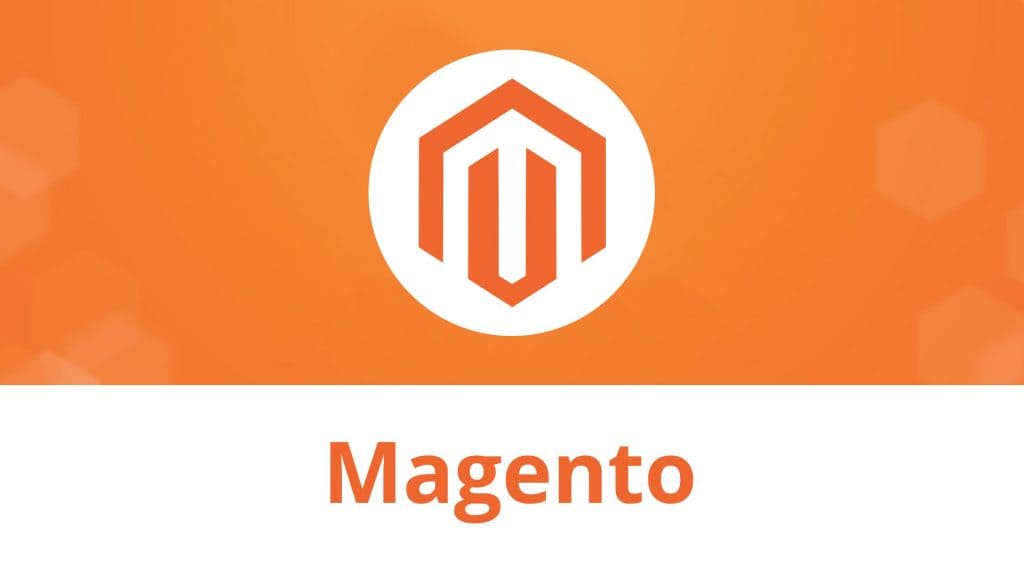Magento is one of the most commonly used eCommerce platforms all over the world. Developers prefer using it because it is an open source application. This means that they can customize the Magento platform as per their preference. The big business setups love using Magento because it is powerful and they have got the perfect budget for paying the annual charges of the Premium Enterprise subscription. In short, Magento is the perfect platform for the global markets. The leading brands utilize Magento CMS in order to power their online stores. In case of micro businesses, Magento’s greatest benefit is the biggest drawback. While you are bootstrapping, you are in need of an affordable and unique solution that is not complex and expensive.
At times people realize the implications of using the Magento platform for their eCommerce website a little late; this happens when they are already knee-deep in implementation or deployment:
- The website on the shared hosting account is running extremely slow
- The eShop is designed like a gang of school kids had their go at it
- The website looks like a Modern / Default theme with a different logo and a not so good color change
- Usability of the website is poor since a wide range of extensions are installed on it
- The web developer has tried his best at customizing Magento and this is done without changing the core files
- The last upgrade worked for you but suddenly the store is slowing down
- The attempted upgrade fails on a frequent basis
- The extension that is newly installed results in crashing of the website and uninstalling it doesn’t help
- The website suffers from extension bloats and conflicts
- The default Magento favicon is still being displayed
Downloading the ‘free’ installation of Magento is like winning a Ferrari car! It is surely a fabulous car, one you are proud to own and you are fascinated with the idea of driving it; however, your joy is destroyed by the ‘real cost’ of owning it. Factors like insurance, high fuel costs and regular servicing come into the picture. Therefore, in terms of this example, unless you have the financial means for operating and maintaining your free Ferrari, you cannot go too far!
So, on what basis can you decide if Magento is the right choice for you and for your online business?
Let’s consider the main aspects involved in the decision-making process:
- Business Plan
- Budget
- Product Catalog
- Store Functionality
- Integration With Other Systems
- Maintenance
Business Plan

The first and the most important thing to be considered is the seriousness you have towards your online business and if you have a proper business plan for it. If you are a big company, what role does the online store play in the overall business strategy? How do you have to integrate it with your business systems? Do you have an online team that can manage your online store website? One of the best options is to opt for efficient Magento hosting platforms like MilesWeb Magento hosting for getting maximum benefits. Since this is a managed hosting platform, it will be easier for you to ensure the smooth functioning of the website.
In case you are a small entrepreneur, where would you like to take your business in terms of growth in the short term and in the long term?
Is this online store going to be your main source of income or you are just doing this side by side with some other business? Are you equipped with the necessary skills required to run the online store by yourself? And if you are not, can you hire someone who manages the online store for you?
Last but not the least, are you ready to invest seriously and understand that while the Magento software is free, the services required for it come at a premium cost?
Budget

Everyone has a budget! Irrespective of whether it is small or big. It is a rare scenario that you will have unlimited pool of money for your eCommerce venture. Even if the entry cost for Magento is free, you might think that your money will go too far. However, soon it is clarified that Magento development often incorporates high costs. It is not easy to find good developers and even though you can take your risks in terms of outsourcing your project on various freelancing websites, you might get sidetracked in the endeavor of trying to find the best deal.
Therefore, it is important to know how much you can spend and for what? Have a look at the important factors mentioned below:
1. Planning
Setting up an eCommerce website needs in-depth planning and attention to greater detail. If you are serious about your online business, it is important for you to have a budget. This will help you in analyzing how your ideas about your eCommerce store fare in the market and how the results of this analysis can be displayed online through your website.
2. Specification
The outcome of your analysis must create a specification document that can be utilized for developing the website. This also serves as a project, feature and custom functionality documentation. At a later point of time, when you need to transfer the ownership of your online store to someone else for whatever reasons, the new provider will be able to get an insight about what they are dealing with. Moreover, good project documentation makes the maintenance process much easier.
3. Design
The next important factor of the budget is the graphic and usability design. It is important to give time to the design for refinement and usability testing. Ultimately, the design of the online store dictates the default features that need to be customized. It is also important to decide if completely new features have to be introduced. Performing early usability analysis is also crucial.
4. Development
The development phase is generally the most significant component in terms of time invested in a project. This is particularly true if there is a need for extensive design and customization to the default functionality. Your budget should also take into consideration the fact that chang might be required in the functionality as the old functionality isn’t working perfectly.
5. Running Expenses And Security
This might change on the basis of the size of the market; however, it is important for you to be prepared. Magento needs its own little turbine to power it. In simple words, you must select a web server that offers sufficient processing power for your online store.
6. Ongoing Maintenance And Enhancements
Another crucial aspect of running your online store is ongoing monitoring, tweaking and maintaining. Make sure that your Magento developer is around whenever you need him or you can also engage a Magento specialist firm in order to look after your online store regularly. This firm will also consult with you with regards to the best strategies for improving the overall online store performance and this will have a positive effect on your online sales.
Product Catalogue

Are you selling a wide range of items or just one software? It definitely makes sense to decide if you need all the features offered by Magento. This has to be decided on the basis of the product catalog. On the other hand, if you have a wide range of products that can be easily configured and grouped, then an alternative set of issues arises while implementing Magento. You might need some serious resources along with a good scaling strategy.
If you already have a Magento website on some other platform, and you would like to migrate it, you might think of importing your existing product catalog, customer data and the other history.
Finally, it is also important for you to maintain your product catalog when your website is up and running. You have to decide whether you will be doing it yourself or you will employ some professional to assist you. If you are hiring someone, then you will also have to make sure that proper training is given to them. Try to find people who have experience with Magento as they will be able to give you the perfect advice for your website on all the points mentioned above.
Store Functionality

As mentioned above, at times all that you need is some basic Magento functionalities for your website. Therefore, you need to ask yourself or the developer if Magento will be an overkill for you. Go through the Magento features carefully and make sure if your website objectives can be perfectly aligned with them. You might only need a PayPal button for selling your items and for this; there are other more cost effective solutions
At times, a business starts very small but it manages to offer the right products and then witnesses fast growth. In that case, you will be in a position to easily justify the re-development of your online store with Magento, if you haven’t started with it yet. However, if your business idea is not bearing ample results, then you can cut down a lot of initial cost by setting up a Magento powered online store.
Interfacing With Other Systems

If you are considering this option, then there is a possibility that you are already in the perfect Magento category as you are aware that the eCommerce presence is only a part of your complete chain of business systems. Magento provides with powerful connectivity to the third party systems like CRM, accounting, warehousing and other free systems. Keep in mind that if you need to interface with any third party system that does not have any existing Magento connector then you will have to prepare the budget for custom development.
Maintenance

Now that you have planted the seeds and the plants have started growing, you need to give them water, feed them, maintain the garden and do pest control. This applies to your eCommerce store as well. While there are ongoing maintenance tasks irrespective of the software you are using, with Magento, you will most likely have to take care of the following factors:
Upgrades – Even if your Magento store was developed with the best coding and upgradability, upgrading can be an extremely time consuming procedure at times.
Customization & Additional Functionality – Sooner or later you might want to add some amazing new features or customize the existing ones.
Performance – As the incoming traffic to your website and product catalog increases, you might find that your hosting solution is not able to catch up with it and an upgrade might be required.
Expanding Into The Diverse Markets – Magento enables you to run multiple online stores and websites from the same interface. This is great! But is also important to leverage this feature.
Interfacing With Other Systems – If you haven’t planned for this earlier, then this will be a crucial part of your maintenance procedure as well.
Conclusion
This article covers the decision making process that has to be applied when you are considering Magento as your online solution. We have highlighted where your budget should be concentrated since the Magento software is free assuming that you are working with the community edition. There are many important factors that contribute to the making of the right choice and they are clearly illustrated in this article.















